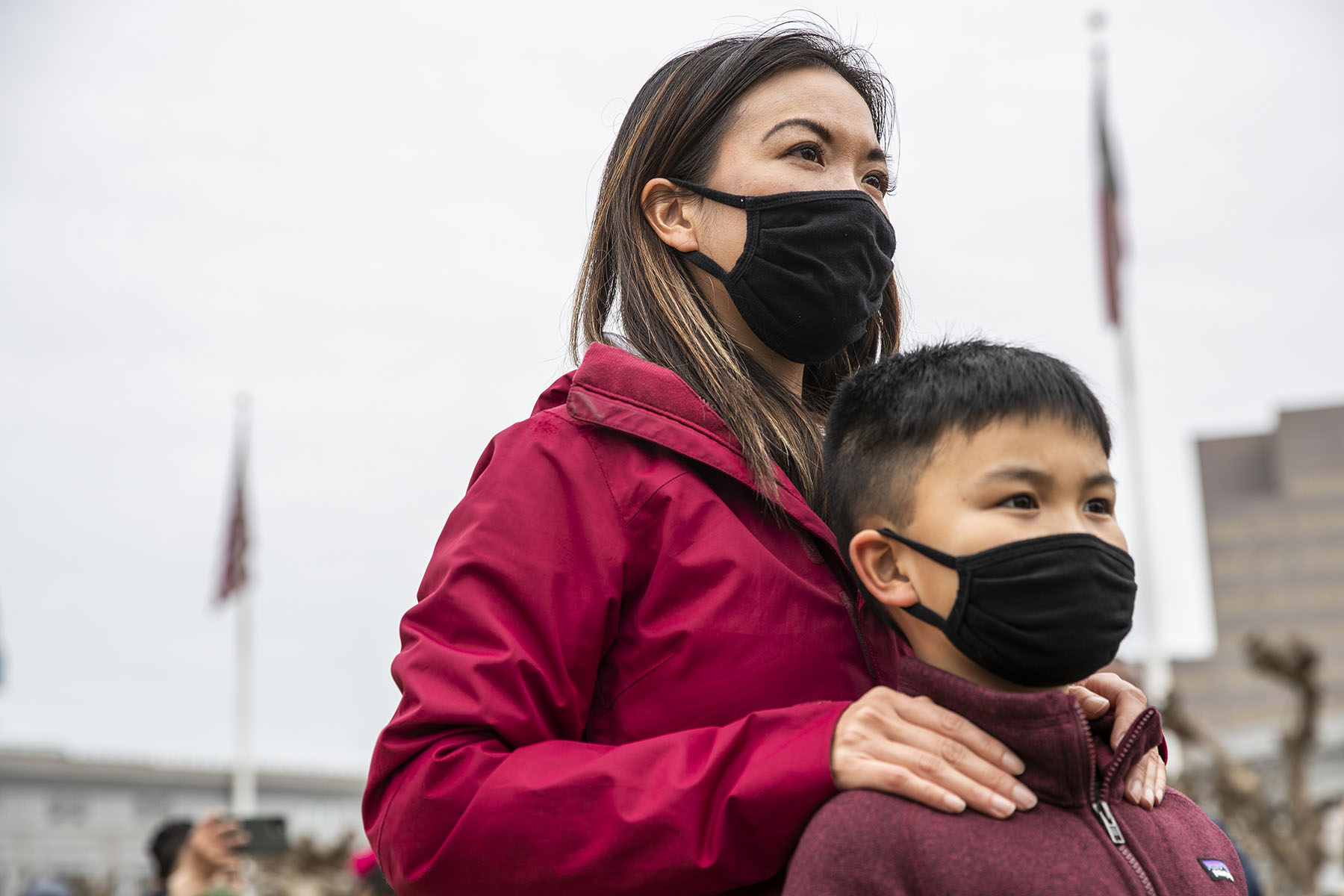A recent poll on the attitudes Asian Americans and Pacific Islanders (AAPI) have about education may challenge long-held racial stereotypes about this group, according to the study’s authors.
Seventy-one percent of AAPI adults support the teaching of slavery, racism, segregation and AAPI history as the nation’s culture wars continue to restrict which subjects are taught in public schools, the survey found. The data was released May 29 by the research organizations AAPI Data and the Associated Press-NORC Center for Public Affairs Research.
“The affirmation that the study of race and racism has a place in K-12 education is important because some people may have the stereotype of Asian Americans and Asian-American parents only focused on, say, math and science, and not on the kinds of critical conversations that are necessary for building an engaged and responsible citizen in America,” said Karthick Ramakrishnan, founder and executive director of AAPI Data and one of the study’s lead authors.
The poll of 1,068 AAPI adults in the United States was conducted from April 8 to 17, with a margin of error of 4.7 percentage points. The poll was conducted in English, Mandarin, Cantonese, Vietnamese and Korean using both online and telephone interviews.
Ramakrishnan, a professor of public policy at the University of California, Riverside, said the persistence of the model minority myth means that some people might find the survey results surprising. The model minority myth, which dates back to the 1960s, frames Asian Americans as industrious, docile and high achieving academically and economically. The idea that such a group welcomes the teaching of the nation’s history of racism in schools undercuts stereotypes that paint AAPI communities, particularly women, as passive and assimilationist.
-
More from The 19th
- Kimberlé Crenshaw’s work was cut from AP African American Studies. Now she’s fighting back.
- States are banning LGBTQ+ subjects in schools. Most students say they were never taught about them anyway.
- Many states don’t require schools to teach sex ed. A new bill hopes to change that.
Asian Americans have historically faced racism in the United States. The Chinese Exclusion Act of 1882 stands out as the first major legislation to limit immigration to the United States. Starting in 1942, the federal government forced more than 120,000 Japanese Americans into internment camps during World War II, arguing that their Japanese ancestry made them national security threats, a fear later found to be driven by racism rather than by wide-scale acts of treason. In the 19th and 20th centuries, Native Hawaiians and Pacific Islanders experienced oppression rooted in U.S. imperialism.
“We have certain groups in the AAPI community that have experienced certain forms of systemic racism in the U.S., whether it’s the internment of Japanese Americans or the colonization that Hawaiians and other Pacific Islanders experienced,” Ramakrishnan said.
As of last July, 11 states had implemented AAPI studies requirements for public schools and 16 other states had introduced legislation that would do so, according to a study by the Committee of 100, a nonprofit representing Chinese Americans in industries including government, business and the arts. Since then, that number has grown, with the Wisconsin legislature in March passing a bill to require AAPI studies in public schools, following neighboring Illinois’ passage of similar legislation in 2021.
Women may be the members of the AAPI community most invested in fighting restrictions on the teaching of racism and related subjects in schools. The poll found that they were more likely than men — 54 percent to 42 percent — to say that teachers have too little influence on the public school curriculum. This could be, in part, because teaching is a woman-dominated profession, but Ramakrishnan also noted that “mothers tend to be more informed about what’s going on in school.”
“They want to give more power to teachers and educators and are not really that supportive of the politicization of school curricula through school boards,” he said.
Overall, 56 percent of AAPI adults oppose school boards censoring classroom discussions, while 17 percent support school boards’ influence over these discussions. Those who identified as conservative or religious were more likely than their liberal or nonreligious counterparts to support restrictions on classroom subject matter.
Although the vast majority of AAPI adults welcome lessons on race and racism in schools, they were more divided when asked if they favor instruction on sex and sexuality. Fifty-three percent supported such instruction, while 19 percent opposed it. The survey found that 60 percent of non-religious AAPI adults were in favor of sex ed, compared with 49 percent of religious ones.
When it comes to colleges and universities, AAPI adults welcome a free exchange of ideas. In states including Florida and Texas, higher education institutions have been the targets of curriculum restrictions just as K-12 schools have. AAPI adults were more likely than members of the general public — 69 percent vs. 62 percent — to agree that colleges should foster “the free exchange and debate of ideas and values.” Fifty-one percent of AAPI adults agree that advancing equity and inclusion is a major purpose of college, while 46 percent of the general public said the same.
The survey did not specifically ask respondents about affirmative action but found that more than half of AAPI adults — 53 percent — said that race or ethnicity is an unfair admissions consideration. An even greater percentage — 69 percent — view legacy admissions as unfair. Just 40 percent believe that hardship or adversity should be considered in the admissions process, and 54 percent say that preferential admission for first-generation students is unfair.
“Most Asian Americans have gone to college,” Ramakrishnan said. “Now, many of them have gone to college in Asia and not in the U.S., so they might not think it's fair if someone whose parents didn't go to college gets a leg up.”
But he added that the AAPI community is diverse when it comes to college attainment. Some members of the community, such as Southeast Asian Americans or Pacific Islanders, tend to have lower levels of college attainment than East or South Asian Americans.
“You have young people whose parents might not have even gotten a high school degree, let alone a college degree,” he said, and pointed out that since some AAPI members face severe intergenerational challenges when it comes to earning a college degree, it’s important not to generalize.
When the Supreme Court ended race-based affirmative action in college admissions last year, it did not rule out the consideration of hardship and adversity in the acceptance process. Hardship could include being a first-generation college student. The court also did not prohibit legacy admissions.
Just under half of AAPI adults view a college degree as the key to maintaining a high quality of life. Forty-eight percent said that a bachelor’s degree can help people get employment that allows them to comfortably support a family. The same percentage said that a degree helps to facilitate job mobility over the long term. Forty-two percent believe that a four-year degree is important to be an engaged citizen.
While the AAPI Data/AP-NORC poll captured a wide range of attitudes, Ramakrishnan said that there is one common thread: “Asian Americans tend to hold education and educators in high regard. They want to keep the politics of school boards away from the classroom.”







